
半導體外商的小小螺絲釘,遊走於廢青與社畜之間。熱愛閱讀,喜歡透過書本探索外在、內化自我。希望藉由書寫打開與世界交流的一扇窗。 個人部落格:https://maxjamesread.com/
"Yiyi": You can't see it yourself, I'll show it to you!
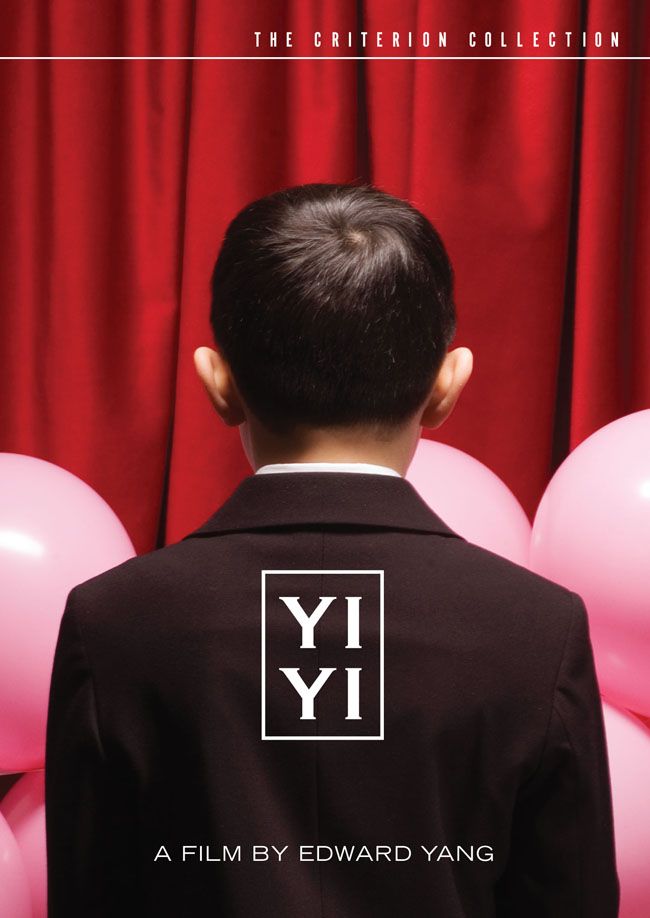
I will watch "Yi Yi", a classic masterpiece by Yang Dechang, because I have seen this work many times in "Green Song" by Gao Yan , a cartoonist living in Japan. In fact, it was a bit intimidating to find that the film was nearly 3 hours long, and the Netflix introduction was written quite artistically:
Through the perspectives of a father, teenage daughter, and 8-year-old son, the film presents the trials of life experienced by a middle-class Taipei family.
Can't help but worry that it will be too heavy and difficult. As a result, I was late and finally pressed the play button recently, and I didn't expect it to look good. The plot does have depth, but it is not dull at all, and there are surprises everywhere. Even someone like me who doesn't have much research on movies watched it with gusto. Can't help but want to write an article to share and recommend.
【Absurd Tragic Comedy】
In fact, as stated in the introduction, the whole story really revolves around the twists and turns experienced by the family of the male protagonist Jian Nanjun (often nicknamed NJ in the play). But what surprised me was that many of the bridge sections gave a sense of eight o'clock guava, full of all kinds of interest and tension.
For example, in the wedding scene at the beginning, Adi's ex-girlfriend Yunyun directly used the sentence "Fuck you!" to start the game; or NJ and his first love girlfriend Ari happened to meet in the hotel elevator. Earthquake broke down and asked, "You made an appointment with me that time, why didn't you come?". Such absurd scenes appear repeatedly in the film.
But the way these tragicomedies of life are handled can be quite interesting. Unlike many works today, where the camera angle is quickly switched, the film often uses long shots or fixed focus at a distance to present these high-tension scenes.
In the photo, the entanglement between Fatty, Tingting and Lily under the viaduct was shot from a very far angle many times; and the scene where Ari entered the NJ room in the Japanese hotel and cried hysterically, also set the camera to the back, Staring at the two of them silently.
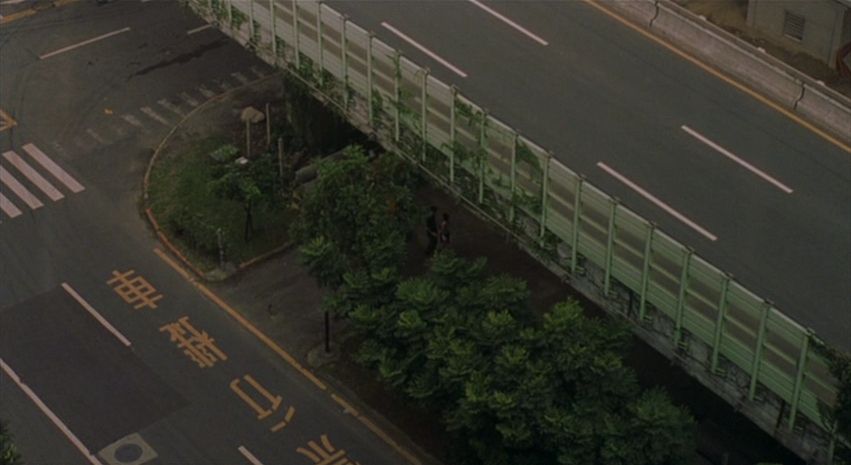
In addition to high tension plots, there are also many quiet but deep passages in the film. Director Yang uses a lot of specular reflections to present these scenes. Like the reflection through the car window, reflecting the entanglement of NJ and Ari sleeping alone; or Minmin standing alone in front of the window, slowly saying: "I have nowhere to go.". The stream of night scenery adorned with the window outside conveys a sense of helplessness and depression.
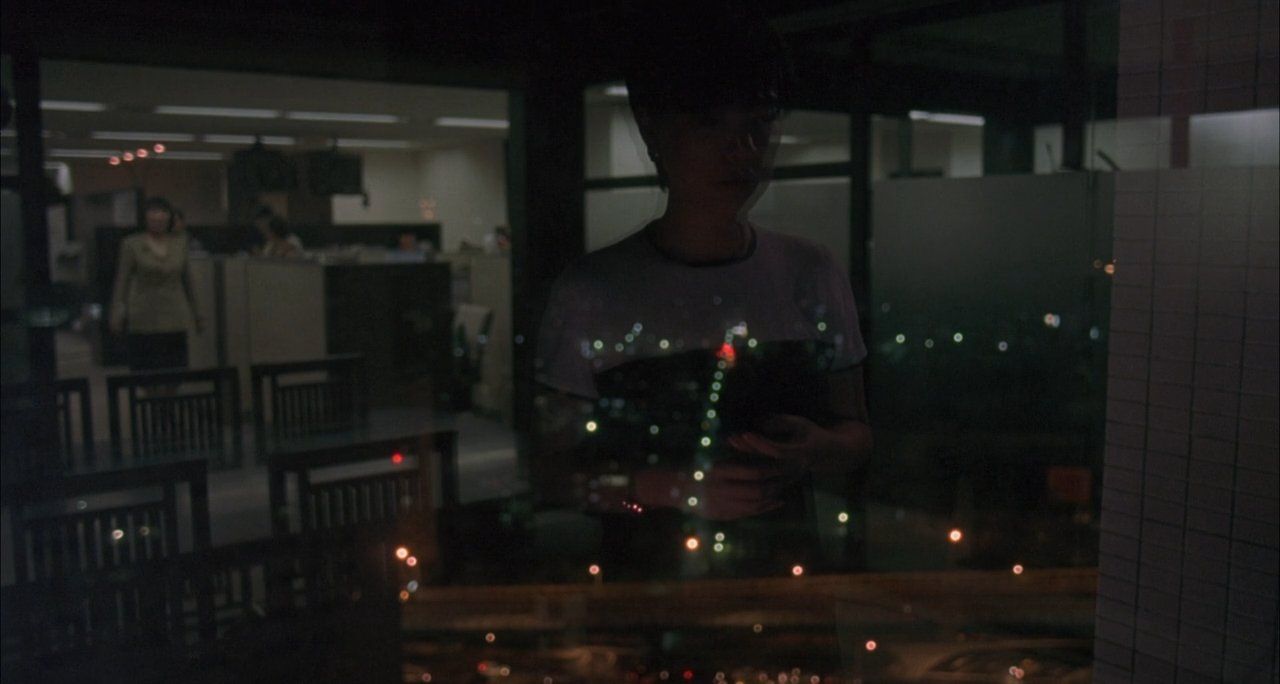
I feel that such a distance and a more indirect way seem to allow the viewers to enter it more calmly and feel the external impulses and inner struggles of these characters. With a little distance, you can see more closely?
If you want to come, you have actually seen it more or less, or even experienced a similar life scene. Like a review on Rotten Tomatoes: Yi Yi has space for everyone. I think maybe everyone can find their own part in the film.

【Viewing angle】
"Perspective" is a concept that is often discussed in this film. The most classic one is Yangyang in the NJ car, and suddenly he said: "Daddy, can we only know half of the things?". It is further proposed that we can only see the front, but not the "back of the head theory" behind.
I feel that Director Yang's lens language seems to present this concept deliberately. For example, when Xiaoyan found out that Adi was lying down in the toilet, I was deeply impressed. He could clearly hear Xiaoyan knocking on the door and crying, but the camera was fixed in the living room, and stayed there for a whole minute, letting the voice shrill in the background, but not filming the scene of the disaster.
And the same goes for the fat man murdering paragraph. It was supposed to be a climax scene. We who watched the movie did not get the usual perspective of God, and the only thing we saw was the slightly exaggerated bloody handprint attached to the pillar.
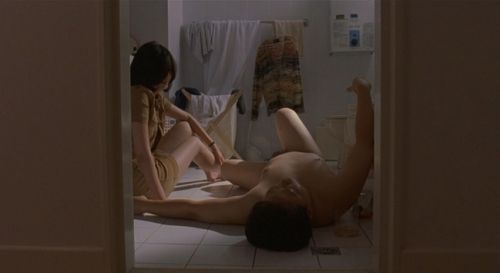
In addition, there are multiple scenes of interlaced dialogue in the film. Like the paragraph where Minmin cried that she had nothing to say to her mother-in-law, followed by the quarrel of the neighbors, and finally the cries and the quarrel, the whole host and the guest were not divided; Directly let the two voices appear synchronously, and even the dialogue is a little inaudible.
I find these shots interesting. Thinking about life is like this, everyone is the protagonist only in their own world, whether it is the tragic scene of the heart-breaking moment of the triumphant spring breeze, many times it is just the background sound to others.
In the face of unseen things, we often can only speculate, but the truth is often more complicated than we think. The quarrel of neighbors in the photo has become the subject of conversation among the neighbors. Unexpectedly, the result turned out to be a mixed love between mother and daughter, teacher and student, and led to murder. Perhaps our perspective is so full of blind spots and prejudice.
But then again, even if you are in it, you may not be able to see clearly. Many times in the face of life problems, the drill is tangled for a while, but the more you look at it, the more you spend. The last dialogue between Tingting and her grandmother in her dream was very touching. Wouldn't it make it more clear if you couldn't see it?
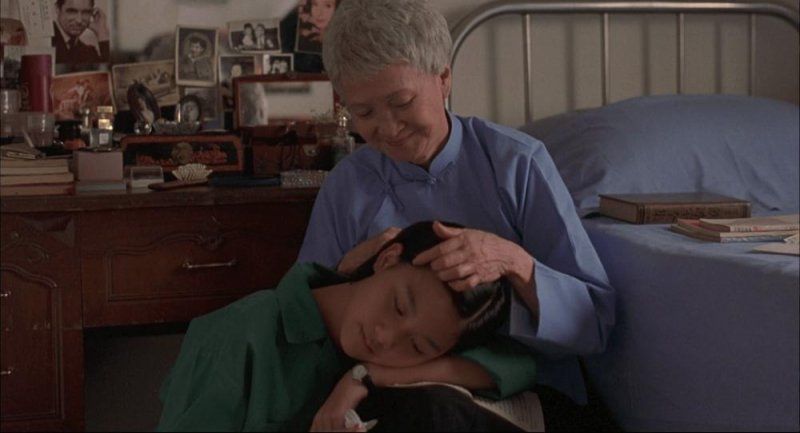
【Such a life】
Therefore, the whole film is to watch Director Yang from various angles, cut into the joys and sorrows of life. There is no clear main line, but wandering around in those daily and unusual events. In contrast, events in the Better House movies will be "resolved", and in "Yi Yi", it is more often full of helplessness and fruitlessness.
"NJ, Ari" and "Fatzi, Tingting" that I like very much have double date paragraphs in Japan and Taipei. One is the re-emergence of an old love after many years, and the other is the eruption of a new love. The two are intertwined, and the contrast is interesting. However, the same thing is that two romances that at first glance can go on, but ultimately lead to a fruitless ending.
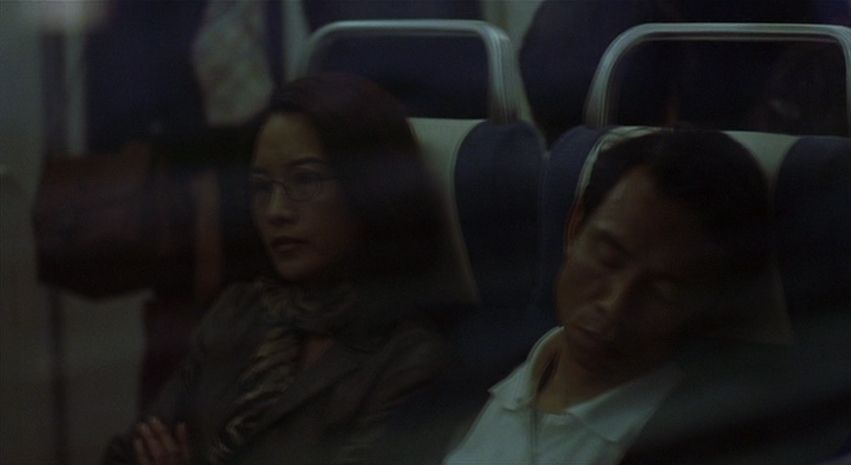
The same goes for NJ's career. The previous year was smooth sailing, but if I was not careful, I was immediately submerged by the tide. The partners tried to change, they found Da Tian and wanted to make a lot of money, and then they wanted to rely on Oda to plagiarize to find a way out. NJ sees all the absurdities in his eyes, and although helpless, he tries his best to cooperate, and even goes to Japan to discuss business with Daejeon (of course, there are private trips...). Although the interaction between NJ and Daejeon was very touching, but in the end, it was still absurd.
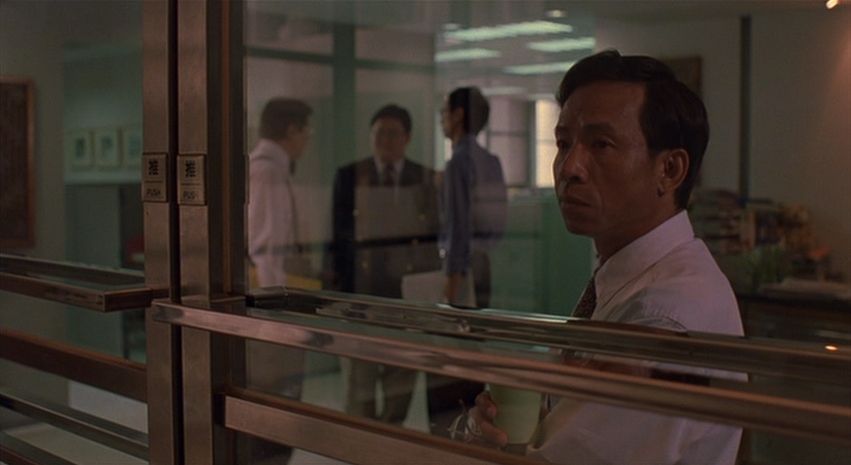
Minmin's entry into the mountain is like this silent rhythm. When he found that he had nothing to say to the comatose mother (all of them talked about repeated itineraries), he went to the mountain to find master for answers, but only felt that his position had changed, from the speaker to the obedient. After practicing for a while, I returned home after my mother-in-law left. Another headless rush.
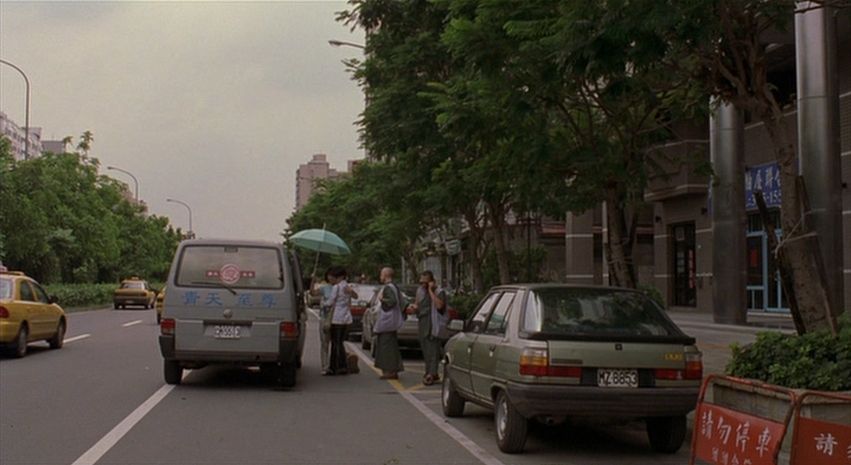
As NJ said to Minmin back home, everything is the same, nothing different. Think about it in life a lot of the time. It may be faced with difficulties, and after several escapes, I finally mustered up the courage to seek change, but in the end it was a fruitless end. Maybe you can only comfort yourself like Minmin, everything is actually not that complicated, right?
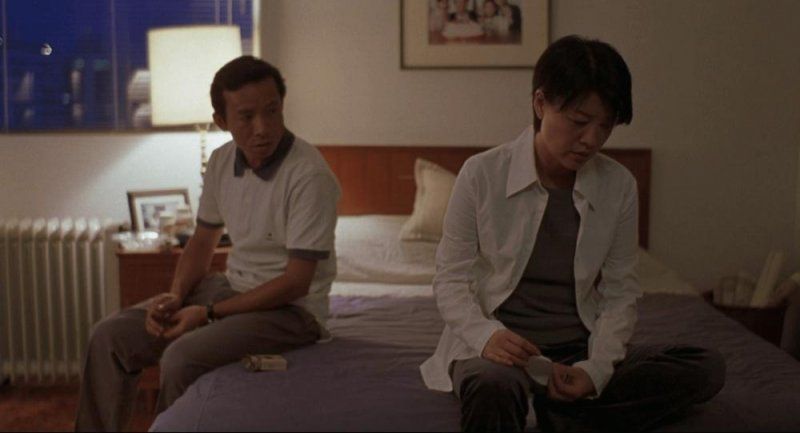
Speaking of which, Yangyang is probably the most courageous person to try to change when faced with problems. After asking the question of not being able to see the back, I started a photography journey of self-exploration. I took a bunch of back shots and skipped class to take photos. Even in exchange for the teacher's ridicule, it is still me. Oh yes, I even ran to smash the teacher's water polo, super kind! I like what he said to Adi so candidly:
You can't see it yourself, I'll show it to you!
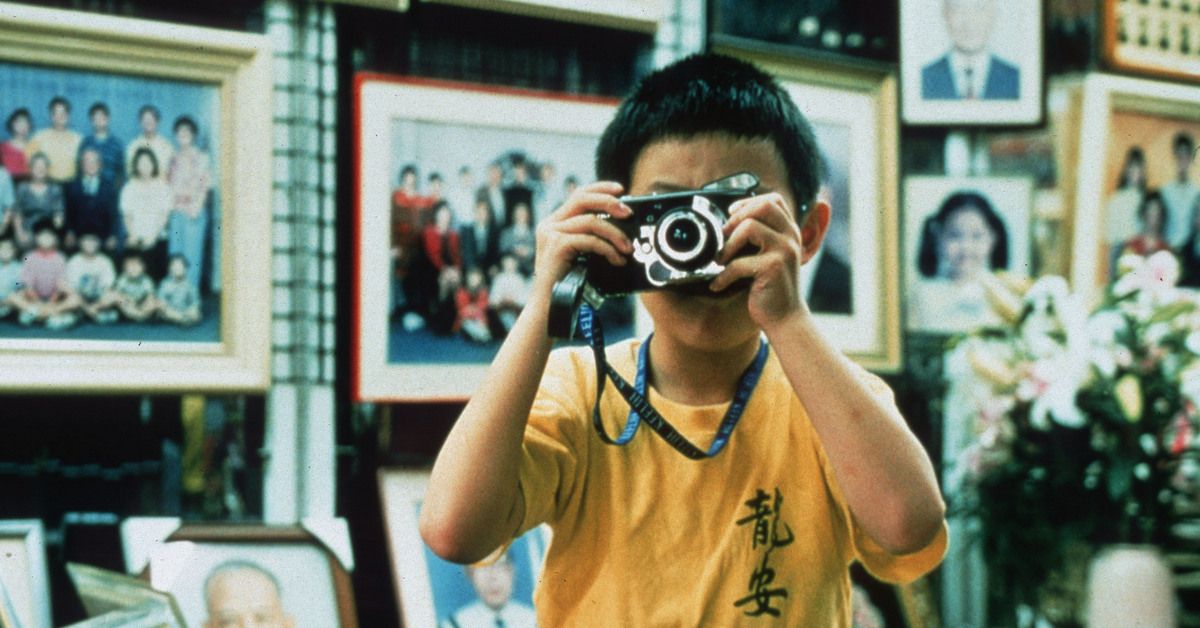
Also, after seeing the heroic swimming of the person you like, first practice holding your breath in the bathroom at home, and then jump out of the pool handsomely. The wet but confident smile on his return home was truly intoxicating.
And the words at the mother-in-law's funeral are also very thought-provoking:
There are so many things I don't know, so, do you know what I want to do in the future? I'm going to tell people what they don't know and show others what they can't see. I think it must be fun every day.
Suddenly I found that this sentence seems to be the reason why I want to share reading! In life, there are too many things that you don't know and can't see clearly. But through these sharing, it is really fun to let everyone see more of the world outside the back of the head.
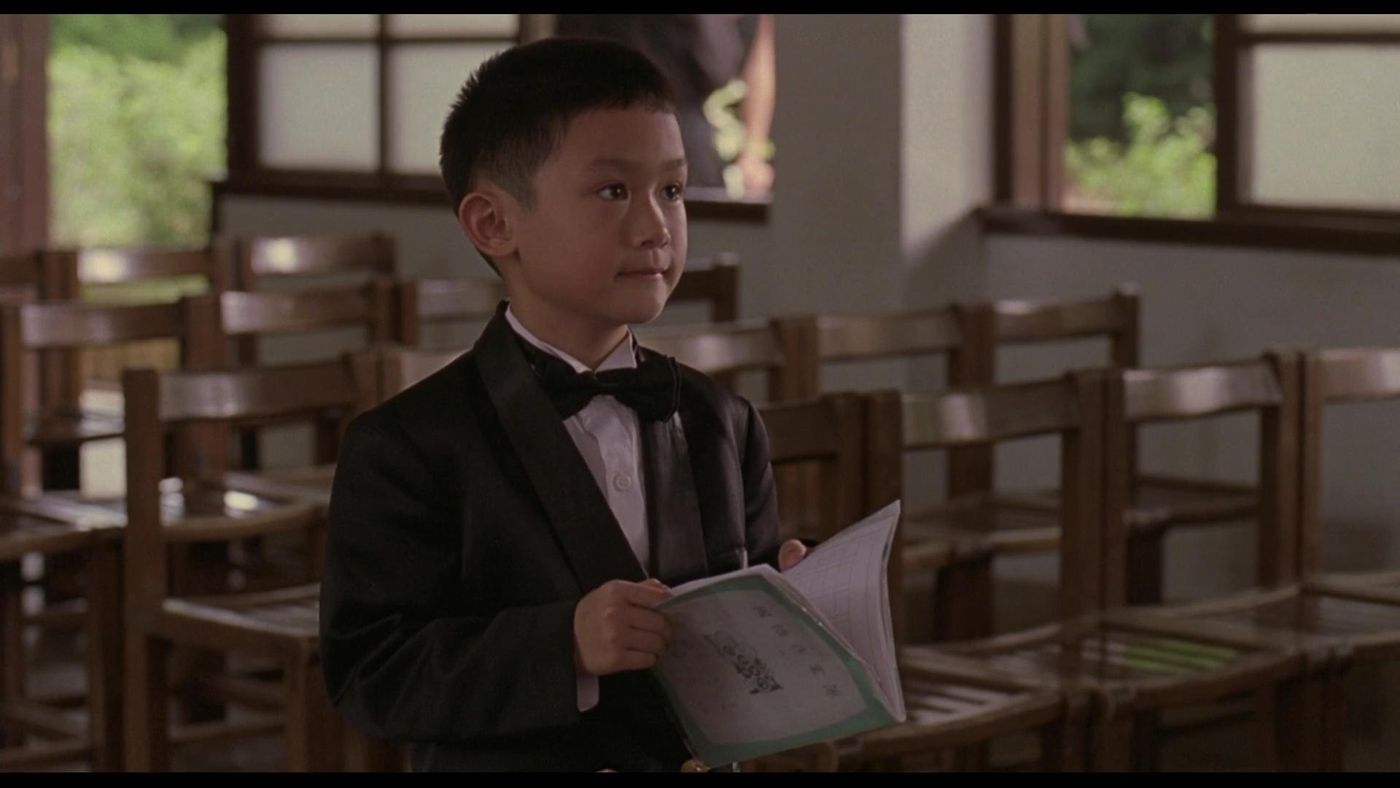
【postscript】
Although "Yi Yi" has many characters and multiple plot lines, each melody line composed by Director Yang has its own flavor, and the interweaving is not obtrusive, delicate and not chaotic. The self-struggle of these people and the subtlety of getting along with each other are depicted perfectly.
And its lens language is more restrained and meticulous, and sometimes humorous. Like Yang Yang in the audio-visual classroom, first saw the panties raised, and then saw the lightning strike in the movie, the positive and negative electricity were combined to create a picture of life, which made people smile.
After watching "Yiyi", I really feel that the so-called "classic" really has its reasons. Don't be frightened by those labels, just look at it with confidence. No wonder so many people love Yang Dechang's works. Looking forward to seeing more of his works.
And this film seems to have helped me overcome my fear of such feature-length, literary films. Let me continue watching "In the Car" for the same nearly three hours. It's really pretty, and I'm looking for an opportunity to share my experience with you all.
Some time ago, I left a message in Ting An's "Yiyi" review article . I only saw this recently. It was really late to meet each other, but she replied: "It's not too late to see it." What a good saying! I think, good content is always there, as long as you are willing to open your heart to capture like Yangyang, you can keep finding surprises!
Articles you may also be interested in:
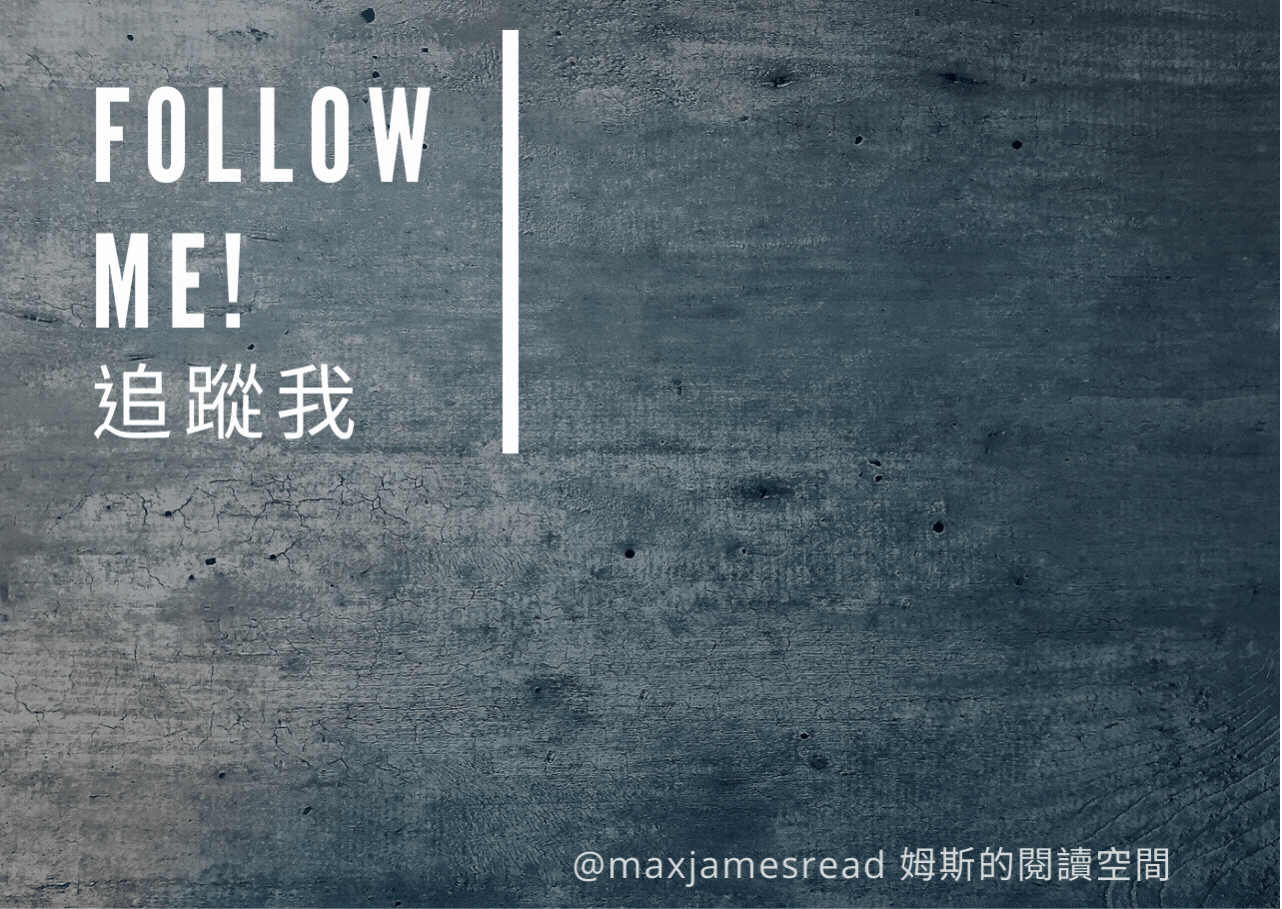
↓↓You are also welcome to follow the Facebook and mourning of "Mrs's Reading Space"↓↓
James' reading space FB
James' reading space IG
Like my work?
Don't forget to support or like, so I know you are with me..
Comment…